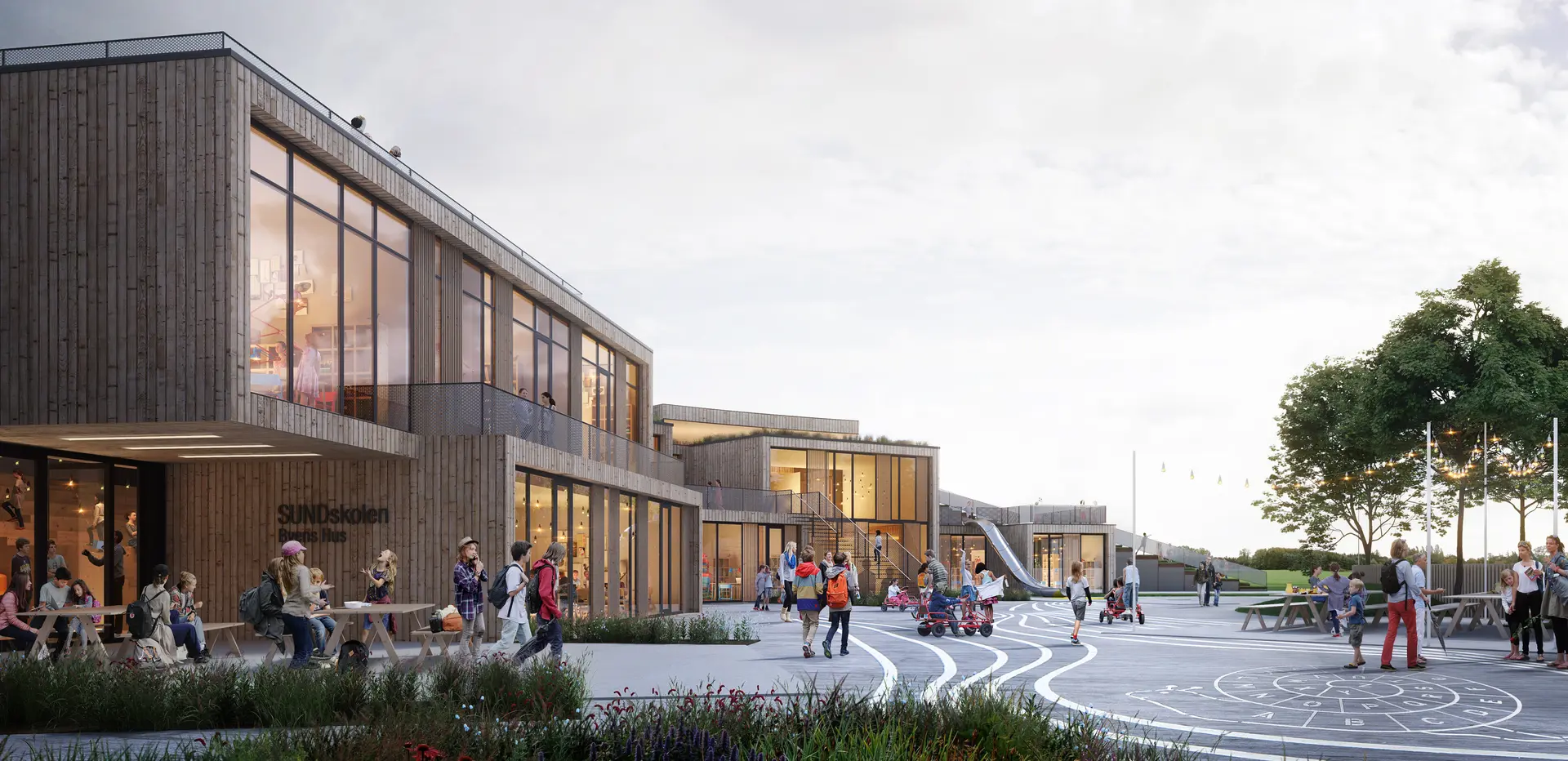
Houston, TX, United States
2022 - 2026
Rice University Residential Colleges
Inspired by the tranquil atmosphere of the John and Anne Grove and busy campus life, our design for Rice University’s two new Residential Colleges creates a new residential hub that embodies the character and architecture of its surroundings while fostering community.
Project details
Situated adjacent to the live oak trees of the John and Anne Grove, the new south colleges are establishing a new residential village on the Rice University campus. Extending from the cover of the grove’s canopy, the new colleges represent the union of campus, nature, and city.
The new south colleges consist of two taller residential towers paired with lower sections that feature both residential units and communal spaces. These include 585 new student beds, a servery, kitchen, student commons, study rooms, student lounges, private dining, and a magister’s residence. Public spaces are positioned towards the campus, staging a vibrant social center with access to sunlight and nature through the use of skylights and a central courtyard. Both colleges feature their own commons, while the servery is shared between them.



Materiality
The façade design references the intricate detail and texture of brick masonry, characteristic of Rice University’s rich architectural history. Reinterpreting the materiality and fabric of the existing campus, the façade expression of each college was designed to establish a unique identity. Warm masonry and punched windows convey a sense of weight and solidity, anchoring the new colleges within Rice’s existing identity, while distinctions in color, window shape, and brick patterning set them apart.
Material choices were made carefully to reduce the project’s carbon footprint where possible. A timber ceiling covers the commons – acting as a continuation of the live oaks from the adjacent grove. Recycled green marble from the school’s previous construction projects accent the interior walls of the server and complement the warm, natural material of the ceiling. Also salvaged from past construction, reclaimed brick is used as accent walls along the podium exterior.





Designed for community
Anchored by a central commons space and elevated terrace, the ground floor of the new colleges will invite the surrounding campus into the heart of the building. The residential towers are positioned around the servery, creating a composition of cascading volumes moving down to the adjacent buildings and campus landscape. Stepping down to meet the campus, the residential towers integrate into the intimate scale of the campus.
The student common spaces will have direct access to the elevated quad at level two, a unique terrace that floats above ground level and sits with the treetops of the grove. Floor-to-ceiling windows, and accessible circulation create strong interconnectivity between outdoor and indoor spaces as well as between different levels. A generous trellis perching over the elevated quad will provide comfortable outdoor space for seating, gathering, and athletic activities.



Contact
All contacts
Daniel Baumann
Design Director, Americas

Lois Suh
Senior Associate, Senior Project Lead, AIA LEED AP BD+C
Next project
Sundby School
Explore project